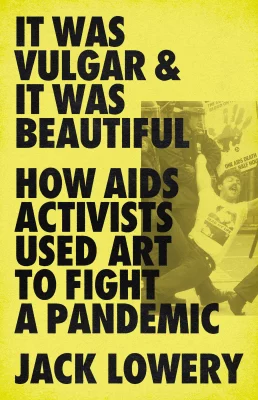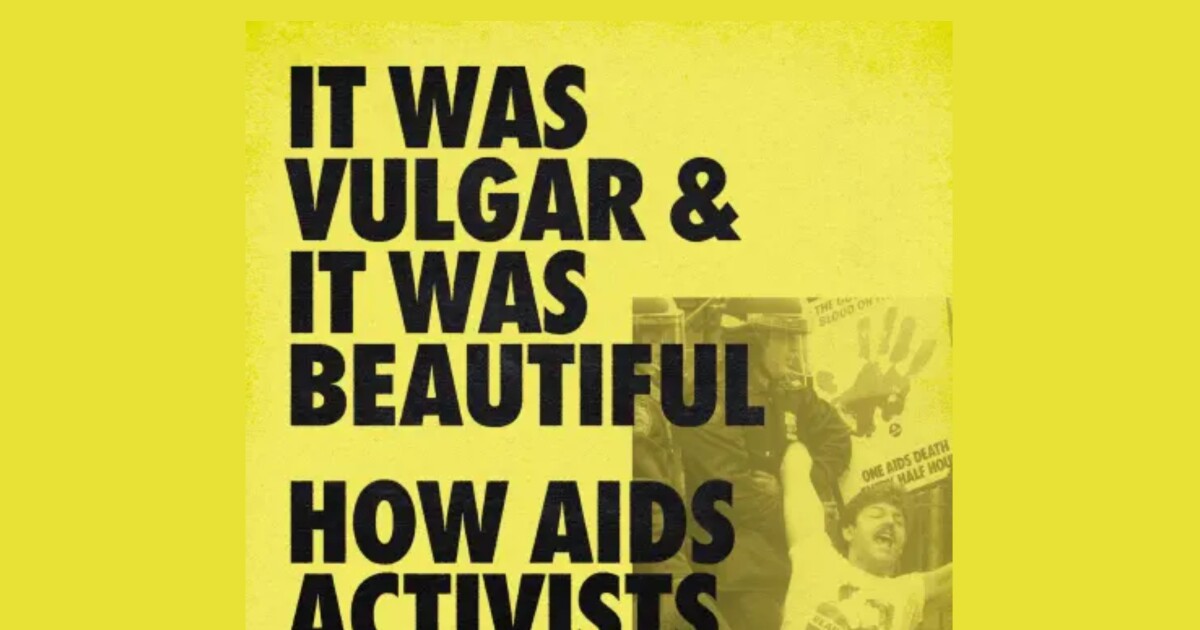Our government and healthcare system failed tens of thousands of people living with AIDS in the 1980s by failing to provide medical care, sexual health education, and resources to improve their quality of life.
Acquired immunodeficiency syndrome (AIDS) is a chronic, potentially life-threatening condition caused by the human immunodeficiency virus (HIV). By damaging your immune system, HIV interferes with your body’s ability to fight infection and disease.
It Was Vulgar & It Was Beautiful by Jack Lowery provides a raw and touching account of an art collective pushing back against silence and inaction during the AIDS epidemic. Lowery tells the story of several men and women who refused to keep quiet about AIDS, forcing the nation to recognize the extent of the epidemic.
Lowery chronicles the art installations by the collective Gran Fury, including Kissing Doesn’t Kill and All People With Aids are Innocent, while also describing the tragic consequences AIDS was having on the members themselves.
Avram Finkelstein, whose story is followed through the entire book, first encountered AIDS when his partner, Don Paul Yowell, began experiencing prolonged fevers over the course of several months in 1982.
The musician would later be diagnosed with AIDS, then called GRID, at a time when no medications or treatments were available. The rest of Yowell’s life would be characterized by hospital visits in which staff would refuse to enter his room or provide any life-giving care. Finkelstein, who acted as his live-in caretaker, became an advocate in these waiting rooms, demanding that his partner be treated. Yowell’s death left Finkelstein inconsolable, shut out from his partner’s family, and resigned to the belief that he was living with AIDS himself.
When Jorge Socarrás, who musically collaborated with Yowell, reached out to Finkelstein to collectively grieve the people they had lost, the two recognized how freeing these open conversations could be. Finkelstein recognized that his partner had only told two people outside his family about his diagnosis, which was a common practice for those living with AIDS at the time. These dinners would grow in attendance and serve as the beginning of an advocacy movement, using art, to address the political nature of the AIDS epidemic.
Gran Fury would later form from members of ACT UP (Aids Coalition to Unleash Power), which was the first political activist group dedicated to the AIDS epidemic. Lowery is careful to document the collective’s highs and lows, describing their most and least successful installations.

These would include the nationalized Kissing Doesn’t Kill poster, which featured three couples of different sexual orientations kissing with the tagline: “Kissing Doesn’t Kill: Greed and Indifference Do.”
This poster ended up getting published around several major cities and carried as part of monumental protests, especially in Chicago, where authorities had enacted censorship laws targeting the LGBTQ+ community and Gran Fury’s installations.
Lowrey not only tells Gran Fury’s story as a collective but also their individual stories, like that of Don Ruddy, who dedicated much of his time to the installation Let the Record Show… before being forced to step back and take care of his partner who was living with AIDS.
Lowrey describes how each member was forced to balance activism, work, and solo art projects with caring for friends, family, and partners suffering from AIDS.
Despite describing a group who attended weekly funerals, this poignant book manages to capture moments of joy and celebration as a movement as well as lifelong friendships formed in both ACT UP and Gran Fury, demonstrating the impact the movement had on this country as well as the representation and comradery it provided for its members.
Incredibly real and often devastating, It Was Vulgar & It Was Beautiful is a valuable record of LGBTQ+ history in the United States that also lands a solid and useful critique of America’s healthcare system.

